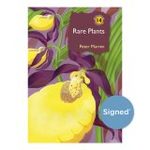By: Stephen Trudgill(Author), Mary Colwell(Foreword By)
402 pages, 12 plates with colour photos and colour illustrations; b/w photos, b/w illustrations, tables
![Why Conserve Nature? Why Conserve Nature?]()
Click to have a closer look
About this book
Contents
Customer reviews
Biography
Related titles
About this book
How we view nature transforms the world around us. People rehearse stories about nature which make sense to them. If we ask the question 'why conserve nature?', and the answers are based on myths, then are these good myths to have? Scientific knowledge about the environment is fundamental to ideas about how nature works. It is essential to the conservation endeavour. However, any conservation motivation is nested within a society's meanings of nature and the way society values it. Given the therapeutic and psychological significance of nature for us and our culture, Why Conserve Nature? considers the meanings derived from the poetic and emotional attachment to a sense of place, which is arguably just as important as scientific evidence. The functional significance of species is important, but so too is the therapeutic value of nature, together with the historic and spiritual meanings entwined in a human feeling for landscape and wildlife.
Contents
Part I. The Experience of Nature:
1. The experience of nature
2. Climate change
Part II. Nature Imagined:
3. Nature in ecological science: explanations, emotions and motivations
4. Nature in literature and art
Part III. Nature, Self and Place:
5. Personal meanings of nature
6. Places for nature
Part IV. Why Conserve Nature?:
7. Possibilities
Customer Reviews
Biography
Stephen Trudgill is an Honorary Vice-President of the Field Studies Council and an Emeritus Fellow in Geography at Robinson College, Cambridge University, where he is Chair of the Gardens Committee and member of the Visual Arts Committee. He formerly lectured on the social engagement with nature, biogeography, soils, nature conservation and environmental management in the Department of Geography at Cambridge University. He has experience of Nature Reserve Management Committees in Slapton Ley National Nature Reserve, Devon and community conservation near Cambridge. He has written, edited and co-edited seven books to date. He was also a contributor to the recently published Cambridge book, Curious About Nature (Burt and Thompson, EBC, 2019).
By: Stephen Trudgill(Author), Mary Colwell(Foreword By)
402 pages, 12 plates with colour photos and colour illustrations; b/w photos, b/w illustrations, tables
"[...] This is a most unusual text. It’s part philosophy, part poetry and a great deal of critical thinking about words and their meanings (real and imagined). It’s the sort of text that should be read by all who want to see clarity in their thinking and who wish to explore areas that so many gloss over. Not an easy read but maybe an essential one."
– Paul Ganderton, The Niche 53(4), winter 2022















































